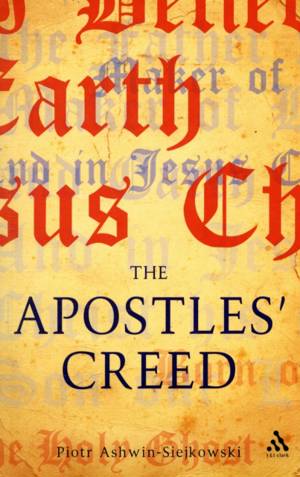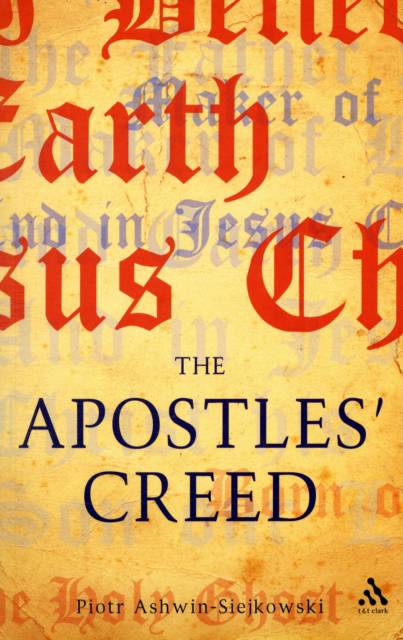
- Afhalen na 1 uur in een winkel met voorraad
- Gratis thuislevering in België vanaf € 30
- Ruim aanbod met 7 miljoen producten
- Afhalen na 1 uur in een winkel met voorraad
- Gratis thuislevering in België vanaf € 30
- Ruim aanbod met 7 miljoen producten
Omschrijving
The Apostles' Creed is an expression of Christian theology that was formed in a period of fascinating and creative debate. The creed is not simply a dogmatic, static, and cryptic symbol of Christian faith, but, on the contrary, a lively narrative that can still inspire imagination, critical reflection, and faith.
In The Apostle's Creed, the ancient debates that led to the formulation of its twelve pronouncements are examined. The richness of early Christian thought is explored by looking at the ideas behind each creedal pronouncement and tracing the theological debates that inspired each statement. Early Christian theology is not treated as 'unanimous, ' but as pluralistic. The polyphony of theological opinion, which characterized the Christianity of this period, is therefore highlighted and celebrated.
Specificaties
Betrokkenen
- Auteur(s):
- Uitgeverij:
Inhoud
- Aantal bladzijden:
- 208
- Taal:
- Engels
Eigenschappen
- Productcode (EAN):
- 9780567328212
- Verschijningsdatum:
- 1/07/2009
- Uitvoering:
- Paperback
- Formaat:
- Trade paperback (VS)
- Afmetingen:
- 137 mm x 213 mm
- Gewicht:
- 249 g

Alleen bij Standaard Boekhandel
Beoordelingen
We publiceren alleen reviews die voldoen aan de voorwaarden voor reviews. Bekijk onze voorwaarden voor reviews.







